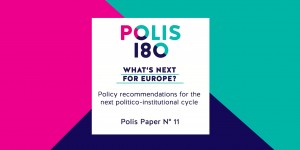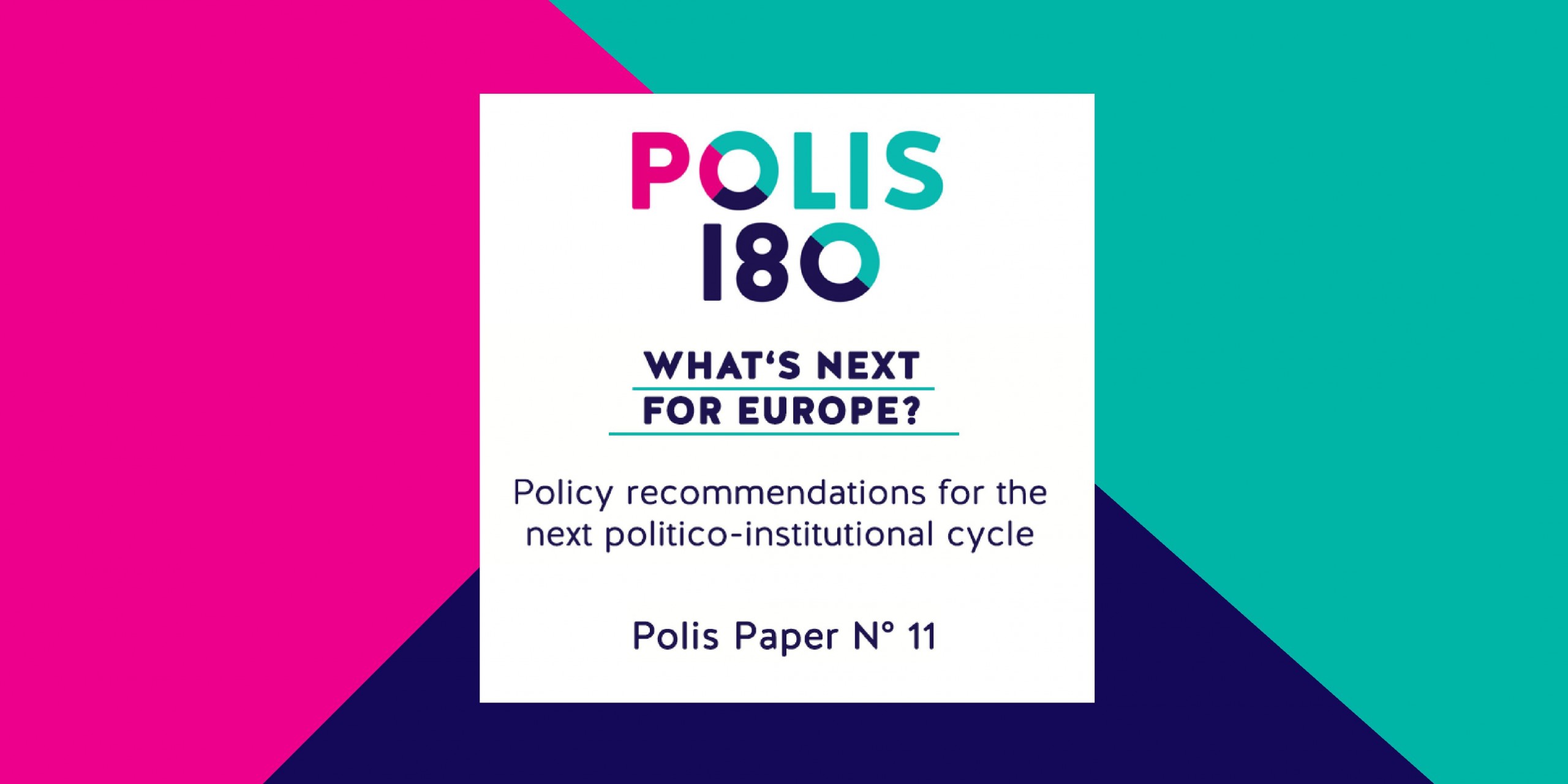What’s next for Europe?
Policy Recommendations for the next politico-institutional cycle
Sophie Pornschlegel, Claire Saillour (Eds.)
Authors: Christoph Abels, Adrian Eppel, Jenna Fave, Christina Häberle, Kerstin Mohr, Sophie Pornschlegel, Claire Saillour, Alexander Sorg, Lena Strauß
We do like – some of us even love – Europe, the EU or the European idea. But the EU we live in is not flawless. In the weeks following the election of the European Parliament, we asked Polis180 members what they think should be improved in the EU. Four topics emerged as policy areas where change needs to be brought on the way: institutional design and cultural policy, climate, digitalisation and security & defence. In these areas our contributors present current issues of EU politics and potential for progress.
First of all, First, Sophie Pornschlegel gives on page 2 a comprehensive overview of potential reforms for the EU’s institutional design and sums up in 10 points how to strengthen democracy in the EU. She stresses the importance for the EU to find a multilevel, multispeed approach to decision-making. According to Sophie, the EU needs to focus as much on citizen participation as on delivering on key issues such as climate change.
In “Reconnecting the EU with its citizens” on page 7, Adrian Eppel, Jenna Fave and Christina Häberle take the same line. The article stresses the importance of making the relationship between the EU and its citizens more tangible. The authors criticise the lack of responsiveness of the EU institutions to citizen consultations and public debates. They also point out the need for the EU to become more visible in everyday life, suggesting common festivities, digital platforms for dialogue and the creation of cross-border constituencies.
The EU needs to find innovative ways to develop international and transnational relations with other regions of the world. On page 10 Claire Saillour suggests delivering on EU’s strategy for Culture in External Relations by engaging foreign audiences beyond the display of national productions in showcase events. Training offers for cultural officers of participating Member States might be a relevant approach to leverage more efficiently the potential of culture in EU’s external relations.
In the chapter on climate change on page 18, Kerstin Mohr stresses the urgency to think climate change and gender as a nexus, not as separate policy issues. She discusses why EU policies should take gender into consideration when developing climate and environmental strategies.
Christoph Abels, in his contribution on page 22, focuses on the gap between the EU and other regions of the world in the competition for leadership in digital technologies. The author suggests developing a European Innovation Agency and including training on human-robot interactions to a Skills Agenda for Europe.
In the field of security and defense, Alexander Sorg discusses on page 30 the weakness of the EU in arms control, which lacks a common voice and therefore fails to act strategically. He suggests institutional reforms, such as abandoning unanimity voting on matters of security and defense in the European Council. He stresses the role the EU could play in close cooperation with NATO, by using its soft power to set norms and influence the arms control discourse.
Last but not least, Lena Strauß explores on page 34 how the current cooperation between the EU and UN for the military operation in Mali (MINUSMA) could evolve into a more strategic partnership by following three recommendations: introducing rotating supply mechanisms of specific capabilities, working out a joint assessment of the situation in (central) Mali and agreeing on a common EU-UN strategy for Mali.

